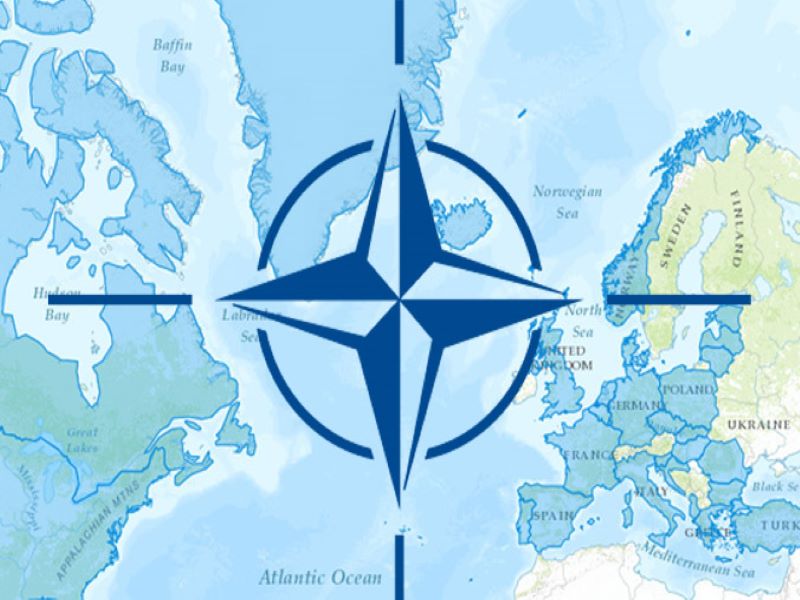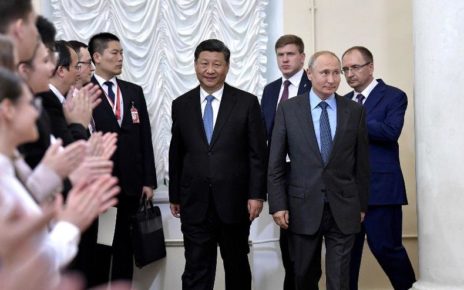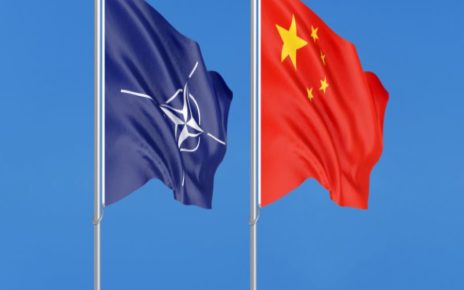NATO’s existence as a military organization of like-minded states has made it arguably one of the most successful alliances in history. A direct attribute of NATO’s success is Article V of the Washington Treaty which declares the mandate for collective security and defence of the transatlantic region and is an agreement amongst its members that an “attack against one member is an attack against all.” Article V has been instrumental to the interoperability of NATO member state’s militaries, the political cohesion of former Warsaw Pact states, and the common adherence to transatlantic rules, norms, and values. However, Article V’s collective defensive pact is testing the long-term solidarity and commitment of the Alliance towards protecting one another, as China’s great power rise and the increased competition in the Indo-Pacific drive NATO’s major powers—namely the US, UK, France, and Germany—to engage more in the region.
Article V resulted from the primary concerns and desires to ensure a pact of mutual assistance to counter, deter and defend the liberal-democratic states within the transatlantic region from the Soviet Union. To ensure that this pact would transcend all parties, governments, and leaders, Article V declared that “an armed attack against one or more of them in Europe or North America shall be considered an attack against them all.” During the Cold War, this outcry for uncompromising military and political support forged a coalition of like-minded allies against the Soviet Union. Although the Cold War had its moments that nearly saw Article V’s invocation, it was not until the 9/11 terrorist attacks that Article V was invoked.
Since the Cold War and the era of terrorism, Article V has primarily been interpreted in terms of conventional armed attacks from air, land, and sea. However, with the shift towards a contested multipolar global order, the advancement of emerging disruptive technologies, and coming off the heels of the Trump presidency, the debate on Article V has re-emerged. In particular, cyberattacks by Russian and Chinese governmental agencies and state proxies aimed at stealing industrial and military secrets have increased the importance of cyberwarfare and cybersecurity to the Alliance. Moreover, the aforementioned debate on cyberwarfare has also challenged NATO’s collective defence mandate.
Despite NATO declaring cyberattacks potentially triggering Article V in 2014 and the recent announcement by NATO during the 2021 NATO Summit considering attacks from space as grounds to trigger Article V, no further practical or strategic implementation has occurred. Coupled with this slow response is the strategic trouble of Article V’s role against China and its functionality in responding to armed attacks on NATO members in the Indo-Pacific.
In the 2021 Brussel Summit Communique, NATO reaffirmed its commitment to Article V while underpinning it as the heart of the alliance. This perspective was shared by US President Joe Biden when he declared Article V as a “sacred obligation.” Nevertheless, with Sino-US great power competition unfolding in the Indo-Pacific, along with France and the UK tilting their strategic outlook towards the region, NATO needs to have serious discussions on the precedence for triggering Article V in defending its major powers and its principal ally—the US—in the wake of conventional or unconventional attacks from China.
NATO’s operations in the transatlantic region and its peripheries—the Arctic, Mediterranean Sea, North Africa, and the Middle East—are based on historical ties and practical geopolitical interests. These operations occurred through Article VI—a supplement to Article V—that warrants the collective defence pact to out-of-area jurisdictions. According to Article VI, NATO considers an armed attack on any member’s territories, forces, vessels, or aircraft in any “out-of-area” jurisdiction in the North Atlantic and North Tropic within the constructs of Article V. This outlook provides legitimate diplomatic and military precedence in terms of initiating first-stake or defensive operations per the security and defence of the transatlantic region—these were the grounds for NATO contributing to the 2003 War in Afghanistan, the 2011 military intervention in Libya and the airstrikes in Syria against ISIS in 2014.
Thus, if NATO foresees these peripheries as an out-of-area jurisdiction that warrants the involvement of NATO forces or the invocation of Article V, perhaps NATO needs to turn its attention towards how best to apply this principle to the Pacific Ocean and Indo-Pacific region as well. After all, the US and Canada both border the Atlantic and Pacific Oceans, with America having territorial possessions in the Pacific Ocean and Asia-Pacific region; France and the UK both have overseas territories in the Indian and Pacific Oceans; with the UK having historical ties and diplomatic agreements with the Commonwealth Nations and the Five Power Defence Arrangements.
However, calls for updating Article V to reflect these geostrategic realities have yet to occur for two reasons. For one, many small and middle NATO powers that reside on the eastern and southern flanks fear that such a refocus on China risks diverting NATO from its two principal geopolitical threats—Russia and terrorist organizations. Moreover, China has invested significantly in the infrastructure and trading sectors of many small and middle powers—with Greece and Italy becoming bilateral partners in China’s Belt and Road Initiative and China becoming Germany’s biggest trading partner with export exchanges growing to $243 billion in 2020. Secondly, despite the calls for NATO to refocus on China, the US is not asking NATO to support strategic competition in the Indo-Pacific. Instead, the US is seeking a new transatlantic bargain, with NATO focusing firmly on Europe and its collective defence and deterrence against Russia with American support and recommitment. In return, NATO allies would support the US in countering China through diplomatic and economic strategies.
Article V’s role is in somewhat of a strategic quagmire, and if left unaddressed, two substantial strategic consequences on the Alliance’s credibility will unfold. For one, if NATO suffers a defeat by China after invoking Article V, it can be anticipated that an event would cripple each member’s military and economic resources, along with witnessing small and middle powers withdrawing from the Alliance to avoid China’s economic wrath. The second strategic consequence is if NATO hesitated to invoke Article V in the wake of Chinese armed aggression against the US, UK, and France in the Indo-Pacific. If this occurred, perhaps these major NATO powers would pull and direct their resources—collectively or unilaterally—towards the military threat, thereby abandoning the smaller and middle powers in NATO.
These two consequences would also offer Russia undisputed reigns for invading, occupying, annexing, or influencing Europe’s eastern flank.What is more, these outcomes would illustrate to Russia the Alliance’s lack of cohesion and unity towards collective defence while also showcasing a reluctance from NATO’s small and middle powers to invoke Article V against a great power—a status that Russian is eagerly seeking to regain. Lastly, these consequences may also advance the prospect of NATO’s disintegration or existence as an alliance.
NATO must undertake crucial discussions about their member state’s commitment and solidarity towards Article V as failure to do so will strike at the Alliance’s most prized asset, its reputation for capability and credibility in defending and deterring against threats to the transatlantic region and the liberal-democratic nations residing within.
Photo: NATO’s Flag imprinted upon the like-minded nations that make up the transatlantic region and the Alliance. By NATO. Public Domain.
Disclaimer: Any views or opinions expressed in articles are solely those of the authors and do not necessarily represent the views of the NATO Association of Canada.




